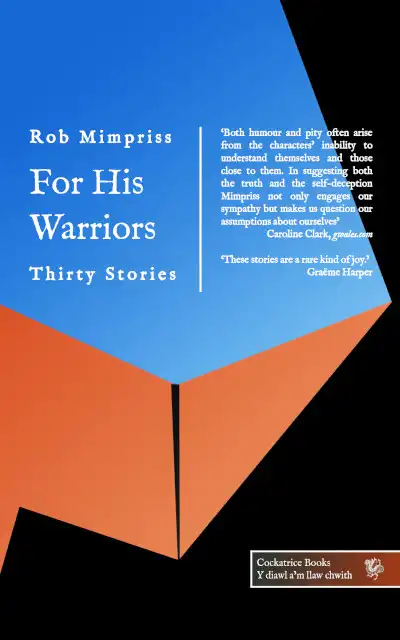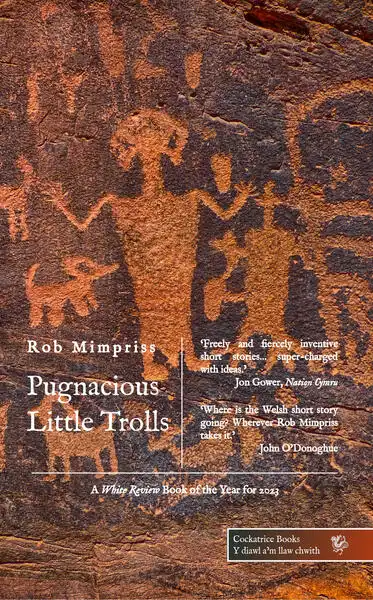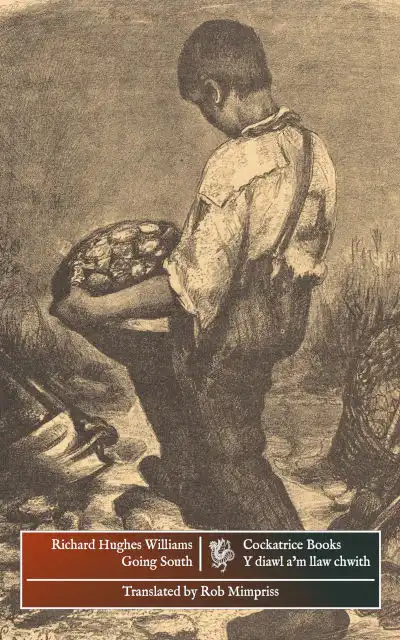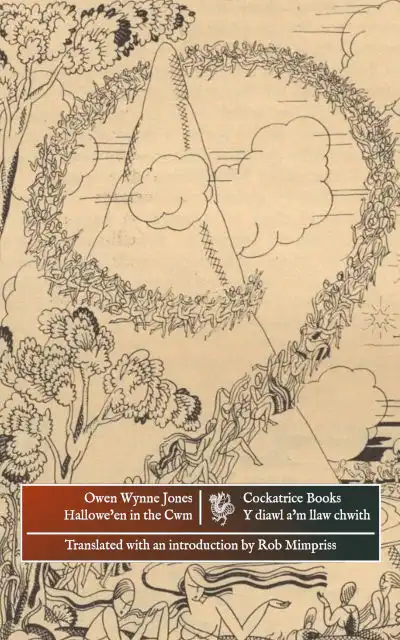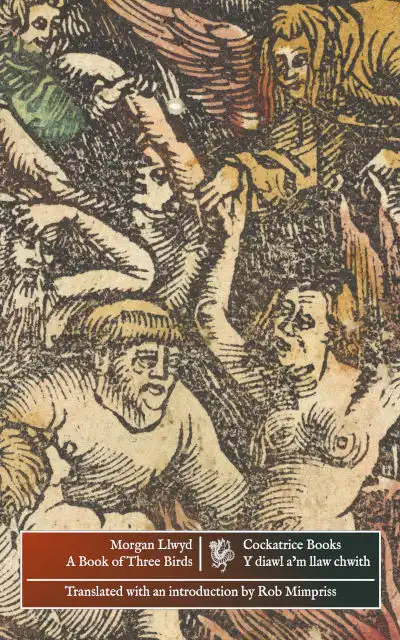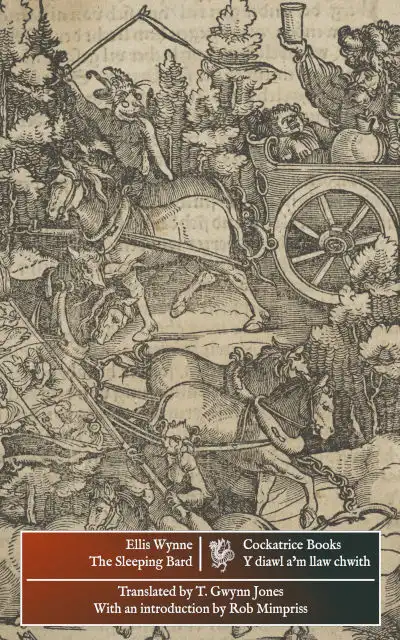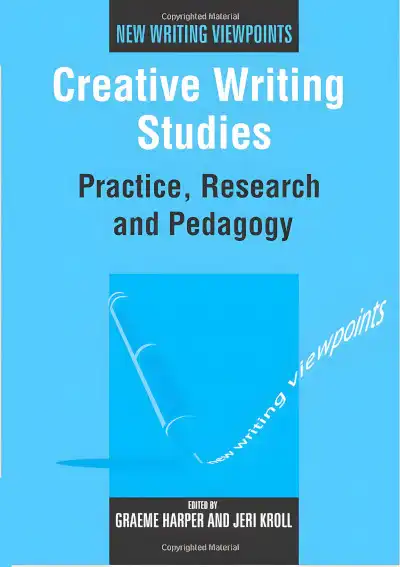Iolo Morganwg (Edward Williams, 1747-1826) was a stonemason by trade, a poet, an antiquarian and forger, a Unitarian and a political radical, and the founder of the Gorsedd Beirdd. These six fables from the Iolo Manuscripts are retold by me with changes to quicken their narratives, and to bring out their contemporary relevance.
The Magpie and the Wood Pigeon
A magpie saw how clumsily a wood pigeon was building her nest, and tried to help her by giving instructions, saying, ’Put a twig here and a twig there, one twig this way and one twig that, and then your nest will be homely and strong.’
‘I know, oh! I know, oh! I know, oh!’ said the wood pigeon, but for all that he patiently tried to teach her, she ignored his advice, building as clumsily as before. Finally the magpie grew impatient with her. ‘You know,’ he told her in disgust, ’but you don’t do.’ And away he went about his own affairs, while still the wood pigeon called out, ‘I know, oh! I know, oh! I know, oh!’ behind him.
The Fowler and the Cooper
Each of us sees the world in the light of his own concerns, and it is rare for us to understand each other. Hence, a fowler and a cooper went into the woods together, the fowler in search of woodcocks, and the cooper to gather wood for making hoops. They had not gone far when the fowler cried, ‘Ho! I see a woodcock!’
‘Where?’ asked the cooper.
‘There, where I'm pointing,’ replied the fowler. ‘At the foot of the alder on the edge of that marsh.’
‘Is it near that hoop-stave?’ asked the cooper.
‘Hoop-stave?’ said the fowler, ‘what hoop-stave is that?’
‘Beneath the hazel tree, right in front of you.’
‘I see neither your hazel nor your hoop-stave,’ said the fowler.
‘Nor I your woodcock or your alder bush,’ retorted the cooper. And so it went on, each one taken up with his own concerns, and neither of them able to see what the other was seeing.
Ceinan, Daughter of Ceinwawr
There was a woman in Wales of princely blood, whose name was Ceinan, the daughter of Ceinwawr, and she was famed for her beauty. All spoke well of her, and longed for the sight of her, and failing that, they imagined her beauty according to their own conceptions: to one, she was as fair as new-fallen snow; to another, as white as the foam of the wave; and to another, as bright as a white-washed wall reflecting the morning sunlight.
Yet each of those who met her found some fault in her beauty, and endeavoured to correct it: one of them painted her white, to make her seem more fair, another coloured her cheeks, to make her seem more wholesome. ‘She is too short,’ said one, and ‘She is too tall,’ said another, each one determined to improve her according to his own ideas, and none of them able to agree on where her defects lay. Yet after she had been beautified according to everyone’s ideals, there was nothing to be seen in her but ugliness and deformity; and so her suitors and admirers slipped away, and even those who had tried to improve her avoided the sight of her.
When Ceinan saw how she was slighted, she went and looked at her reflection in the glass, and was indignant to see her face so made up that she could no longer own her own self. Then she scrubbed herself clean again, and was admired for her beauty as before, while even those who had tried to improve her praised her in the belief that they were praising their own work. For many claim to love the truth, even as they disfigure it, until it degenerates into a lie, and then it is hated by everybody. Yet the worst of them are last to acknowledge their prejudices or admit when they were misled, for it is hard to acknowledge that one is in the wrong, after maintaining that one is right.
The Man With Carrion in His Sleeve
There were once two neighbours called Eidiol and Eidwyll, both of them married men. Eidiol’s wife was cleanly and neat, and her neighbours spoke well of her, but Eidwyll’s was slovenly, disorderly and extravagant, and Eidwyll was despised because of it. Early one morning in summer the two men were mowing in a field near the village where they lived, and when Eidiol noticed the raggedness of his neighbour’s clothing and the unwholesomeness of his food, he broached the matter with him as follows. ‘It seems very strange to me,’ he said, ‘that you can endure to live with such a wife. I can find nothing good to say of her. She is dirty, bad-tempered and idle, and you have lost of all respect through your marriage to her.’
‘Habit,’ replied Eidwyll, ‘habit will accustom a man to anything. There is nothing in the world which cannot become a habit, and habit will reconcile you to any situation. Habit is the soft bed in which the conscience sleeps: there was a time when I saw my wife as you do, but now I am quite at ease with her.’
‘It could never be so with me,’ said Eidiol. ‘I would leave my wife and travel to a new country where I would be respected.’ Eidwyll made no reply, and instead sought for ways of teaching his neighbour what habit can achieve. The next day the weather was hot, and seeing Eidiol’s coat cast aside, he took a putrid carcass he had found and concealed it in Eidiol’s sleeve. Later Eidiol noticed the smell, but whenever he complained about it, Eidwyll made some irrelevant remark, and over time Eidiol’s complaints grew less and less frequent, and finally he gave up referring to it. Then Eidwyll asked him if he was still troubled by the smell, and Eidiol said, ‘No, it’s gone away, or I’ve become used to it.’
‘Ah!’ said Eidwyll, ‘it is just as I said. Habit will reconcile you to anything, and custom makes everything bearable,’ and he told Eidiol what he had done.
‘Very well,’ said Eidiol, ‘you have proved what you said, and made it clear that you are quite irredeemable. Wallow in filth and self-deceit as you please, but I will have nothing further to do with you,’ and he broke off all contact with Eidwyll as a man unfit for his company.
The Smith Who Had a Good Name
There was a smith who had a good name for honesty and skill; and a man once came to his smithy to commission him for an axe. But as he was working on it, the steel slipped out of the axe, and his servant cried, ‘Master! Master! The steel has fallen out!’
‘Then hammer away at the iron,’ said the smith, ‘for if the steel is out, the good name is in.’ And this is the way of the world, for it makes no difference what evil one does, if only one has a good name, nor whether or not one does good, if one has no name at all.
The Hog and the Cuckoo
A hog who was wallowing in the mire one sunny morning in May heard the cuckoo singing on the topmost branch in the orchard; and lifting his snout towards the sunlight, addressed the cuckoo thus: ‘It surprises me that you should have taken the trouble of climbing up so high, merely for the sake of singing cuckoo, cuckoo incessantly, for no one else gives a straw for your cuckoo, and it pays you nothing.’
‘Far from it,’ replied the Cuckoo. ‘I sing for joy at the coming of summer, and the long, sunny days it will bring: my song brings me joy as much its cause, and there is no living creature on earth, except you and your sort, who does not rejoice to hear my glad tidings. All rejoice to hear me and see me, as they rejoice in the arrival of an old friend they love. Neither man nor any ravenous beast in the world would do me harm except you, and you have neither the strength nor the wit to hurt me.
‘And as for you, wallowing in the mire, you are not liked by anybody. Both the sight and sound of you are hateful, and if it were not for the ring in your nose, you would uproot and consume every beautiful thing in this world. But when you have gorged yourself sufficiently, they will kill you for the price of your fat, whereas all would feel the loss if my song fell silent. But no good will come from you until your death.’

